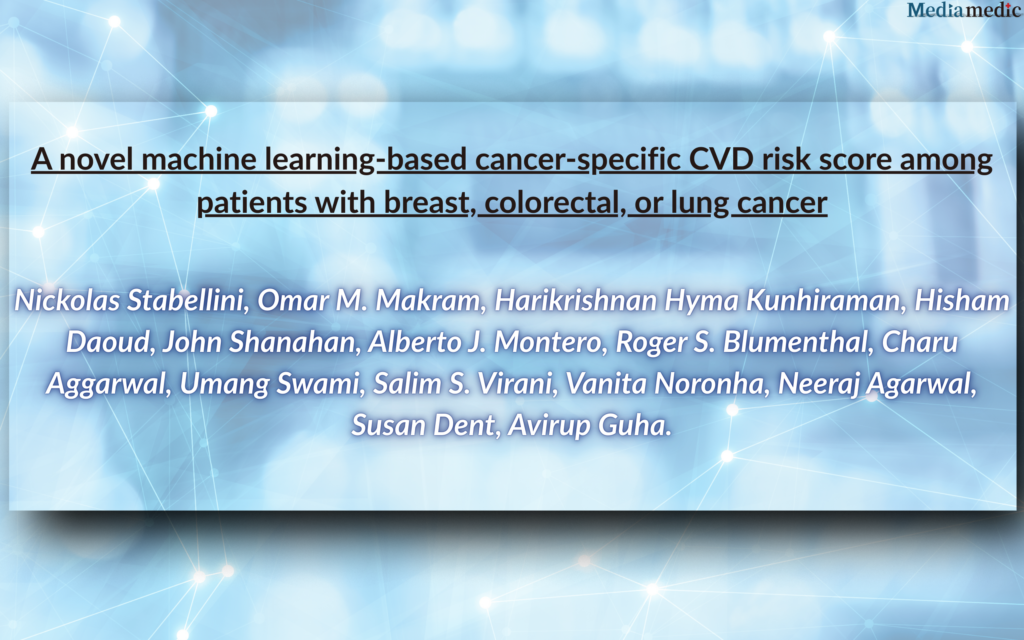
A recent study published in JNCI Cancer Spectrum (Jan 2025) introduces a machine learning-based cancer-specific cardiovascular disease (CVD) risk score, designed to improve risk prediction for breast, colorectal, and lung cancer patients. Traditional risk models often fail to capture cancer-specific factors, leaving patients at a higher risk of cardiovascular complications.
Using Extreme Gradient Boosting (XGBoost) and SHAP values, researchers developed cancer-specific CVD risk scores, which outperformed conventional models like PCE, PREVENT, and SCORE2. The results showed higher predictive accuracy (AUC: 0.84 for breast, 0.76 for colorectal, 0.83 for lung cancer), emphasizing the need to integrate cancer-related and socioeconomic factors into cardiovascular risk assessments.
This study was made possible through the contributions of Harikrishnan Hyma Kunhiraman, Omar M. Makram, Hisham Daoud, John Shanahan, Alberto J. Montero, Umang Swami, Salim S. Virani, Vanita Noronha, Neeraj Agarwal, Susan dent and other esteemed researchers, whose work continues to shape the future of cardio-oncology.
Read the full study: https://lnkd.in/dis7u5rP


